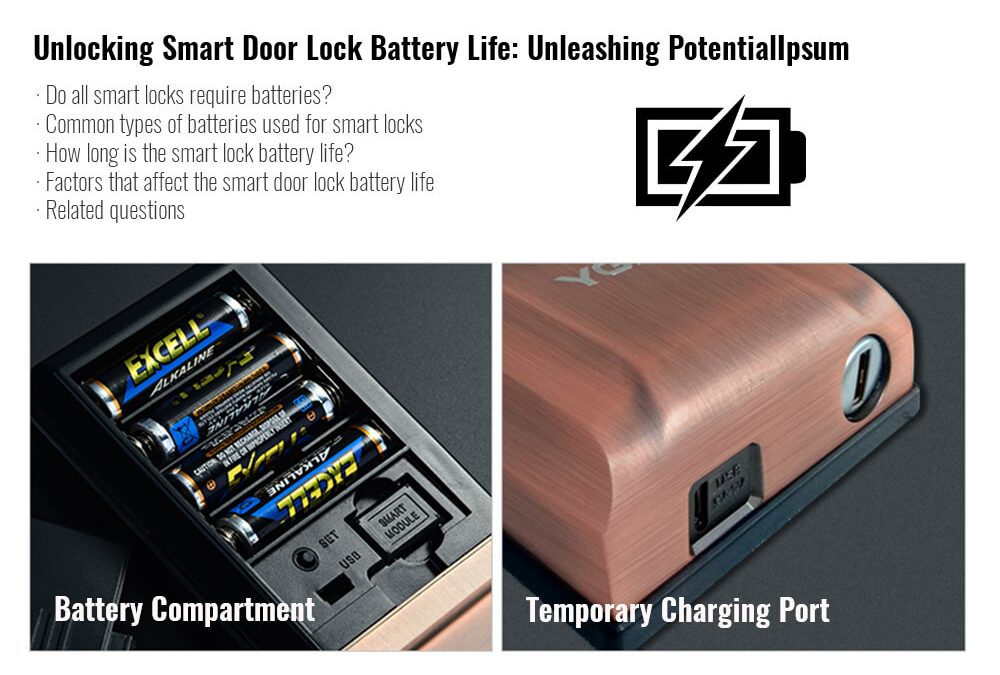Smart door locks have revolutionized home security and access control, offering a wide array of smart features such as remote monitoring, keyless lock and unlock, auto-lock and auto-unlock feature, and integration with smart home systems. As the popularity of these technologically advanced devices continues to grow, so does the concern over smart door lock battery life. After all, no homeowner wants to be locked out due to a dead battery or constantly worry about battery replacements.
In this article, we delve into the world of smart door lock battery life, exploring the factors that impact it and providing practical tips to maximize efficiency. By unlocking the full potential of smart door lock battery life, users can enjoy seamless access control while minimizing the need for frequent battery replacements or recharging. We’ll discuss common types of batteries used, their lifespans, and the factors that influence smart door lock battery life. Additionally, we’ll address important considerations such as battery compatibility, proper charging practices, and future developments in smart lock lithium batteries.
By understanding the nuances of smart door lock battery life and implementing the strategies outlined here, homeowners can ensure uninterrupted functionality, convenience, and peace of mind. Let’s dive in and discover how to make the most of your smart door lock’s battery life.
Yes, all smart locks require batteries. Smart locks are typical smart home devices that utilize the integration of microcomputer modules, micro motors, and mechanical components such as lock cores and bodies to perform all door opening and closing actions.
Unlike mechanical locks, they also incorporate electronic components and wireless communication technologies such as Bluetooth, Wi-Fi, or Zigbee. Therefore, the operation of smart locks is dependent on batteries.
Common types of batteries used for smart locks
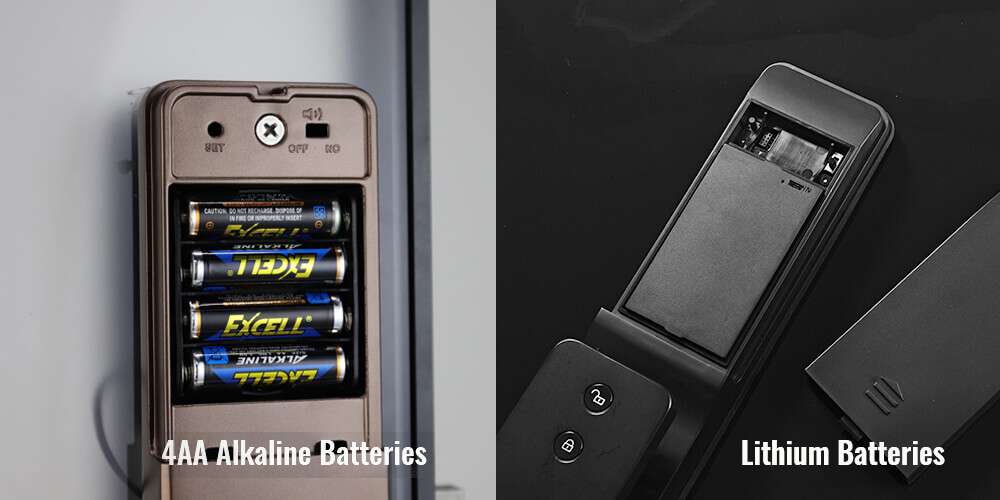
① Alkaline Batteries
Alkaline batteries are the most common and readily available type of batteries. They are often used in sizes like AA and AAA. Alkaline batteries have a relatively high capacity and can typically reach up to 900mAh. They are reasonably priced and widely popular, making them a preferred choice for smart lock batteries.
However, alkaline batteries have two drawbacks.
Firstly, they are prone to leakage. Over time, alkaline batteries may leak fluid, which can cause rusting in the battery compartment and damage the smart device. This issue main direct to the alkaline batteries that lack quality guarantee. And it can be solved by using smart lock special batteries, which adopt double leak-proof technology.
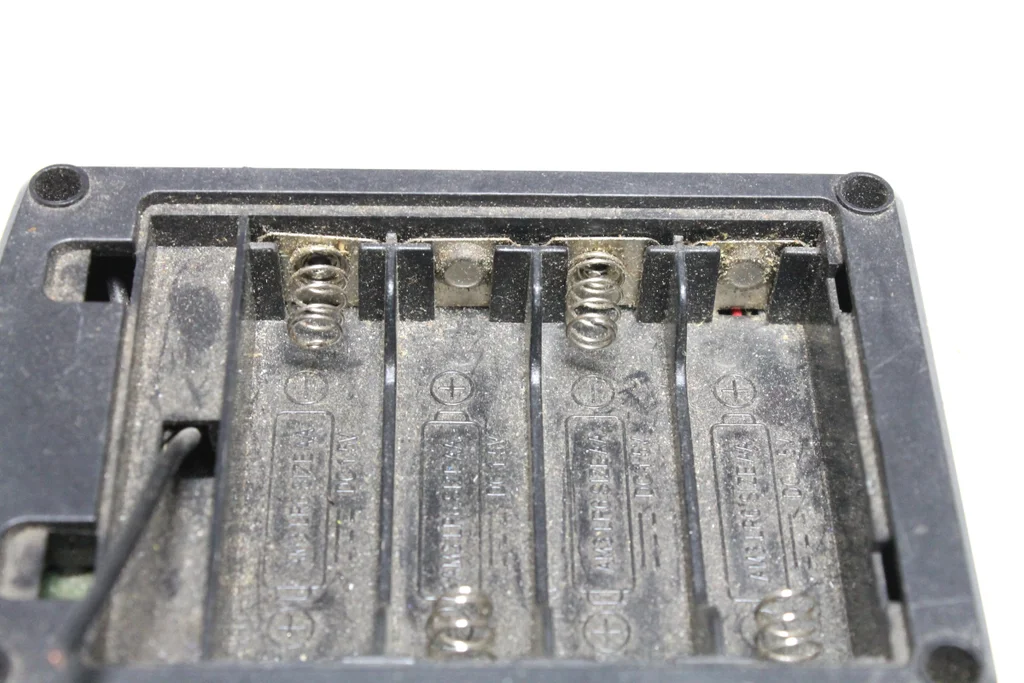
Secondly, alkaline batteries have poor performance in low temperatures. For example, at temperatures low than -10℃ places, the batteries may only provide around 15% of their capacity at room temperature. This makes them less ideal for regions with extremely cold weather.
② Lithium Batteries
Lithium batteries are disposable dry batteries that come after “carbon batteries” and “alkaline batteries.” Compared to the previous picks, lithium batteries offer distinct advantages. They are suitable for all 1.5V devices and can handle both low and high current discharges.
Additionally, lithium batteries do not suffer from fluid leakage as they have a three-layer sealed structure. However, due to their relatively higher price compared to other battery types, they have not yet become widely available and are difficult to find in regular supermarkets.
How long is the smart lock battery life?
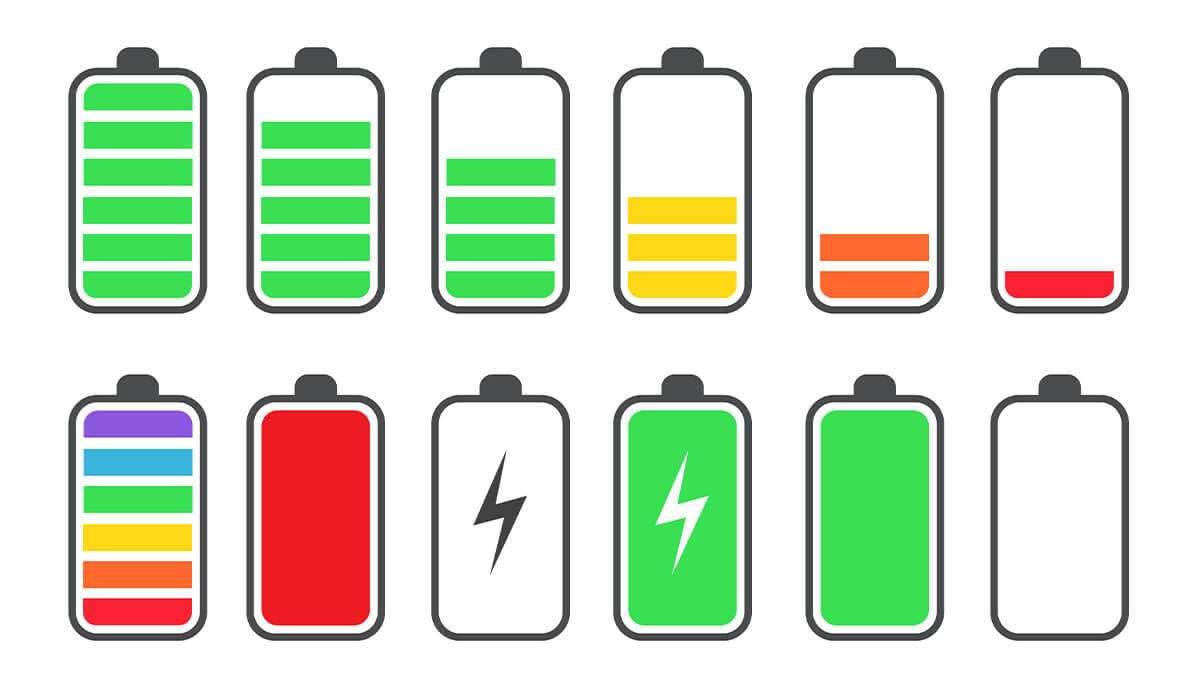
On the premise that the battery quality is guaranteed, a smart lock powered by lithium batteries can last for over a year on a single full charge. Lithium batteries allow for recharge cycles and do not require replacement until they are no longer functional.
On the other hand, a smart lock powered by alkaline batteries needs to have its batteries replaced once or twice a year. Of course, the power consumption of a smart lock varies depending on the number of advanced features it has. More lock functions, more consumption. Different brands of smart locks also have different power consumption levels. The actual power consumption should be determined based on the specific device and using situations.
Factors that affect the smart door lock battery life
Certainly! Here are some factors that can affect the battery life of smart door locks:

① Connectivity: The strength and frequency of wireless connections (e.g., Wi-Fi, Bluetooth, Z-Wave) can impact battery consumption. Weaker or unstable connections may cause the entire lock to work harder, draining the battery faster.
② Motor Usage: Smart locks with motorized components consume power when operating the lock mechanism. Frequent locking and unlocking can contribute to faster battery depletion.
③ Sensor Activation: Many smart locks incorporate motion or proximity sensors to detect movement and trigger actions. Constant monitoring by these sensors can consume battery power.
④ Display and Audio Features: Smart locks with glass touchscreens or smart voice assistants require power to operate these features. The use of these display and audio functionalities can impact battery life.
⑤ Environmental Factors: Extreme temperatures, both hot and cold, can affect battery performance. Operating a smart lock in an environment with temperature extremes may lead to faster battery drain.
⑥ Battery Type: The type of lock battery used in the smart lock can impact its lifespan. Alkaline batteries are commonly used but have a shorter lifespan compared to lithium batteries. Rechargeable batteries provide convenience but require periodic recharging.
⑦ User Activity: The frequency of lock usage, such as locking and unlocking, impacts battery consumption. Homes with high traffic or multiple users may experience faster battery drain.
⑧ Lock Hardware and Software Optimization: Manufacturers often release firmware updates to improve power management and optimize battery usage. Keeping the lock’s firmware and associated software up to date can help extend actual battery life.
It’s important to consider these factors when evaluating the battery life of a smart door lock. By understanding these influences, users can implement strategies to maximize battery efficiency and ensure uninterrupted operation.
Related questions
Can lithium batteries be mixed and used in smart locks?
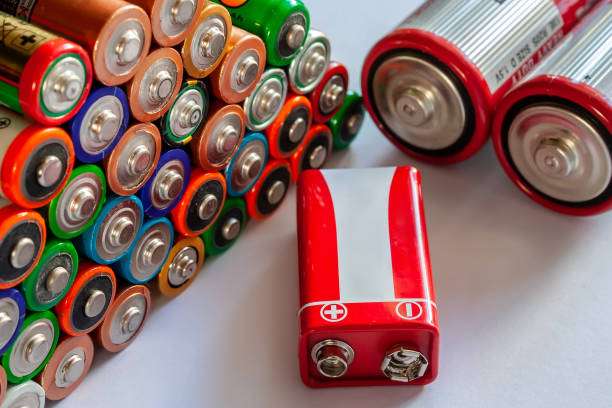
We recommend against mixing lithium batteries with different parameters. This advice is particularly important for smart lock users who lack professional knowledge about smart lock batteries.
Here’s why:
① Calculating battery capacity can have deviations due to different material systems. Mixing different parameters of lithium batteries will lead to an incorrect display of remaining battery power. This can adversely affect the user experience, such as displaying sufficient battery power when it is actually low, posing a risk of being unable to unlock the door.
② High voltage systems should not be used with low voltage systems. Most users can not make a professional determination, which may cause damage to the smart device.
③ Different material systems have varying discharge capabilities. Not all batteries can support high-rate charging and discharging. There is a risk of the smart lock malfunctioning if batteries are unable to handle the required power demands.
How to correctly charge lithium batteries?
To maximize the lifespan of lithium batteries, it is important to purchase lithium batteries from reputable manufacturers. The second is charging the battery correctly.
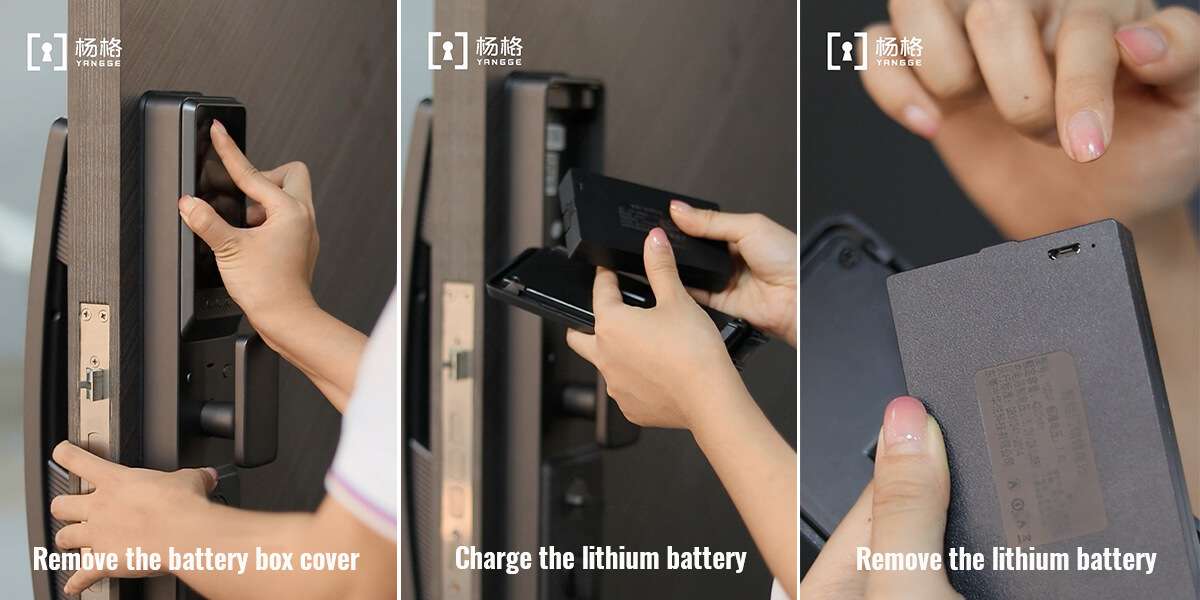
When charging lithium batteries, a USB data cable is generally sufficient. For the initial charge, it is recommended to charge for twelve hours. In subsequent uses, when the battery is depleted, charging for approximately four to five hours should be enough to fully recharge it.
Here are a few points to consider when charging lithium batteries:
① Pay attention to the charging environment. The recommended operating temperature for batteries compatible with smart locks is typically between 0 to 45°C. Avoid charging in excessively low or high temperatures.
② Develop a good charging habit by charging the battery promptly and avoiding waiting until the battery is critically low before charging.
③ Avoid prolonged charging and disconnect the power source promptly after the battery is fully charged.
④ Use compliant chargers that meet safety standards.
⑤ Handle the battery with care to avoid heavy impacts or drops.
How will smart lock lithium batteries develop in the future?

Whether in the smart lock industry or in sectors such as computers and mobile phones, the widespread use of lithium batteries has become a common trend. Industry professionals have revealed that there will be the following changes in the development trend of lithium batteries in the future smart lock industry:
① The trend of replacing dry batteries with lithium batteries is already evident. With their superior discharge performance, lithium batteries can better support the functionality of smart locks and enhance the user experience.
② The trend of larger capacity lithium batteries replacing smaller capacity ones. As smart home integration develops, smart locks come with various smart features, such as smart phone unlocking, fingerprint unlocking, face identification unlocking, and lock code unlocking. Therefore, the capacity requirements of batteries are expected to gradually increase.
③ Increasingly stringent safety requirements for lithium batteries. Smart locks have strong security system attributes and require lithium batteries to be safe and reliable.
④ The use of lithium batteries is more environmentally friendly. Both domestically and internationally, government authorities are increasingly emphasizing environmental protection. Lithium batteries primarily consist of lithium and iron, with no mercury or cadmium, making them more environmentally friendly and energy-efficient.
How to replace the batteries in a smart lock?

Replacing the battery of an electronic lock is actually quite simple. You just need to locate the battery compartment, and everything will be fine. The battery compartment position varies for different types of locks. Most are either located on the back panel or on the side of the lock body.
If you’re unsure about the location of the battery compartment in your smart lock, you can directly consult the corresponding smart lock supplier or refer to the smart lock manual.
If you would like more detailed information, feel free to refer to: [How to change batteries in door lock?].
How to improve the long-lasting battery life of smart locks?

① When selecting batteries, avoid using random or poor-quality batteries. Choose genuine alkaline batteries or smart lock special batteries.
② Do not mix new and old batteries or use batteries from different brands.
③ Be ever prepared with extra batteries on hand in case of emergency.
④ For smart locks that use AA batteries, regularly inspect the battery compartment. It is recommended to check every two to three months. If there is any leakage, promptly clean it up and replace the batteries.
⑤ Avoid placing the smart lock in dark and humid areas, especially when using alkaline batteries, to prevent battery leakage.
⑥ For smart locks with a temporary charging port, it is important to note that the temporary power supply port is only for temporary access and should not be used for recharging.
⑦ Check the battery status regularly and pay attention to any low battery alarm from the smart lock in daily use. And promptly replace the batteries when the battery level is low.
Related Blog
With more than 20 years of smart lock experience, YGS could provide a set of hotel door lock management solutions for your hotel business.
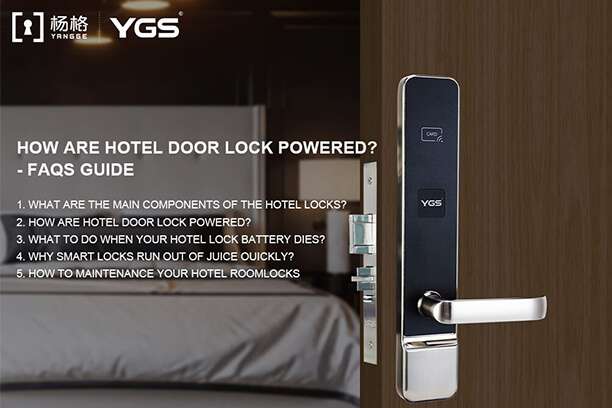
Apr 28, 2023 | Resources
For hotel guests and managers alike, understanding hotel door lock technology is essential. Knowing how are hotel door locks powered is a crucial aspect of this technology. In this article, we will delve into the ins and outs of hotel door locks and their batteries, …
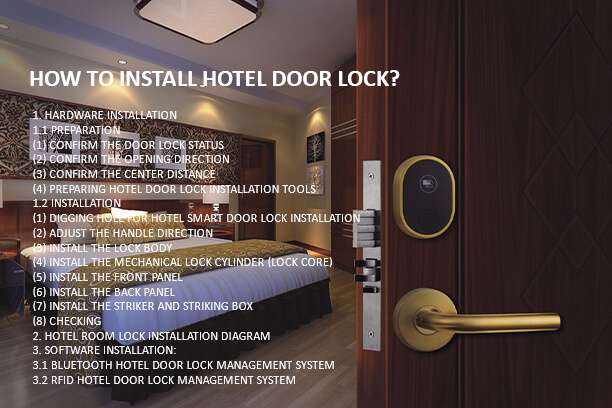
Oct 10, 2022 | Resources
When your hotel receives a hotel lock system from hotel lock supplier, the first thing is to install the door lock. How to install hotel door lock is the first question you have to think about. This article will introduce you to some specific operations and precautions for door lock installation…
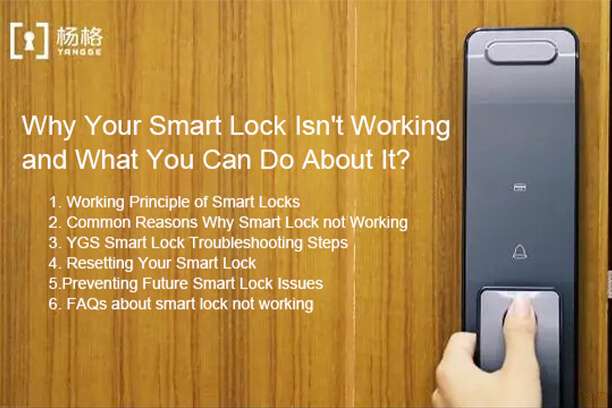
Apr 10, 2023 | Resources
Locks are an important way to protect our homes and businesses and an indispensable part of our lives. Currently, there are mainly two types of locks on the market: physical locks and smart locks. With the development of technology, …
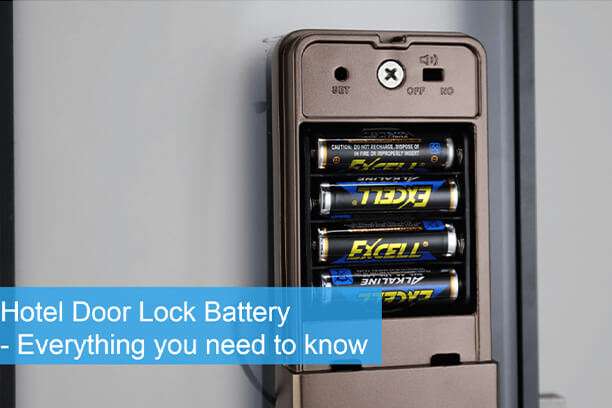
Dec 16, 2022 | Resources
Are you wondering how to change batteries in door lock? In this article, you will get a complete guide about the lock battery, including the lock’s battery level checking, the lock battery types, a step-by-step guide to replacing your dead battery, etc. How to check the lock’s battery level?…

Apr 29, 2023 | Resources
When it comes to building security, traditional locks and keys may no longer be enough. As advanced technology solution continues to evolve, it’s important to keep up with the latest advancements in smart security systems. One of the most promising innovations in this area is the …
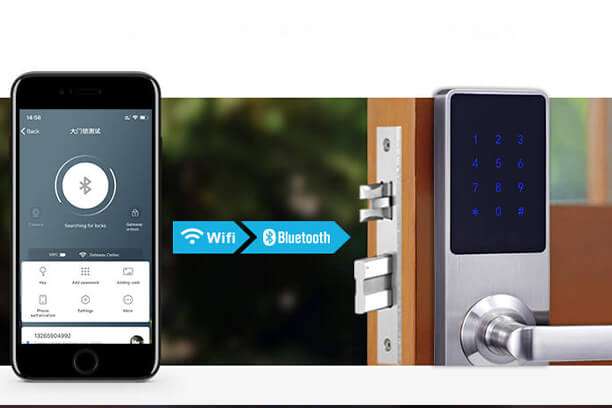
Mar 15, 2023 | Resources
In today’s technological era, smart devices are becoming increasingly popular in our daily lives. We can see a variety of smart devices everywhere, including smart door locks, smart robots, smart homes, and more. In this article, we will focus on smart locks…

